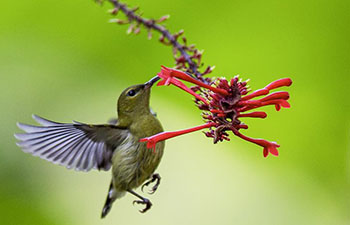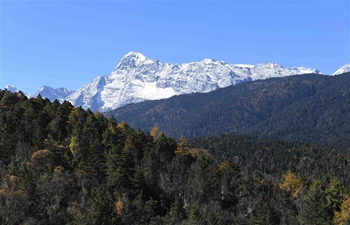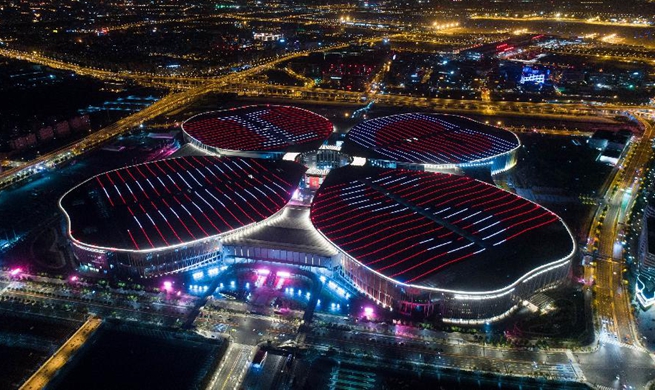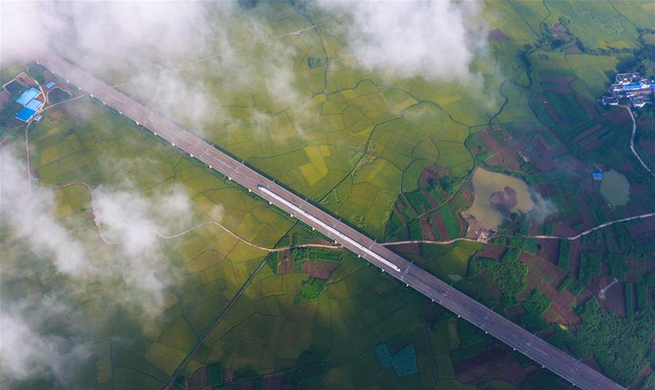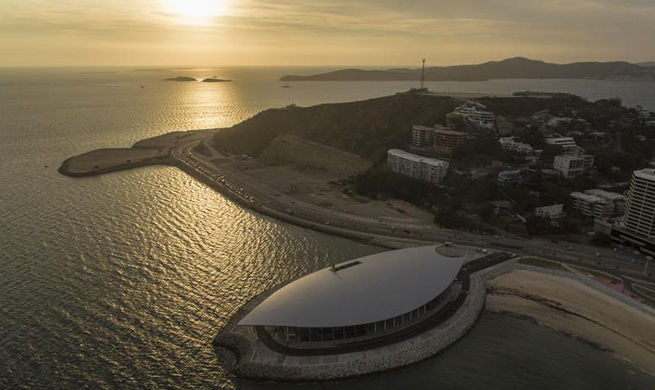CANBERRA, Nov. 12 (Xinhua) -- Australia's flatback sea turtles could be wiped out by climate change within 15 years, a leading expert has warned.
Mick Guinea, a lecturer in zoology at the Northern Territory's Charles Darwin University (CDU), on Monday said that every flatback turtle in Northern Territory could be born female by the mid-2030s as a result of global warming.
The sex of a flatback turtle hatchling is determined by the sand temperature of their nests.
Guinea has studied the NT's largest nesting colony of the native turtles on Bare Sand Island, 50 kilometers of the coast of the territory, since the 1980s and found that sand on the island was too warm to produce any males in 2016.
"If the temperatures are below about 29.5 degrees Celsius we have a male turtle, if it's above 29.5 degrees Celsius you're going to have a female turtle," Guinea told the Australian Broadcasting Corporation (ABC) on Monday.
"As the frequency of these years of producing all females come closer and closer together, then we're looking at a situation where you could in fact have populations that are producing just females," he said.
"And if you have a rise above about 33 degrees Celsius to 34 degrees Celsius, you start getting into lethal temperatures," he added.
According to Guinea, the biggest hope for the species' survival is that nesting females will seek out cooler beaches.
"We might find that further south, the turtles are actually having better success there, and they could be the saviours for the population," he said.
Flatback turtles have been able to thrive on Bare Sand Island because it is largely untouched by humans.
Guinea said that authorities in Sri Lanka and India are trialling shade cloths on beaches to lower the sand temperature.
"We actually do have the tools available to us at the moment. Should we decide to, we could actually shade some nests and relocate nests," he said.
"But it is labour-intensive and it is extremely expensive in remote areas," he added.
